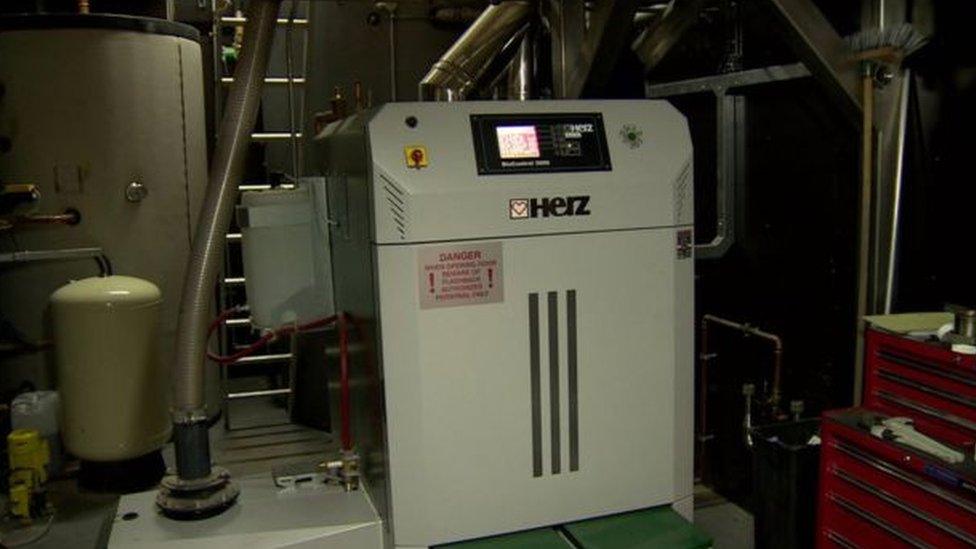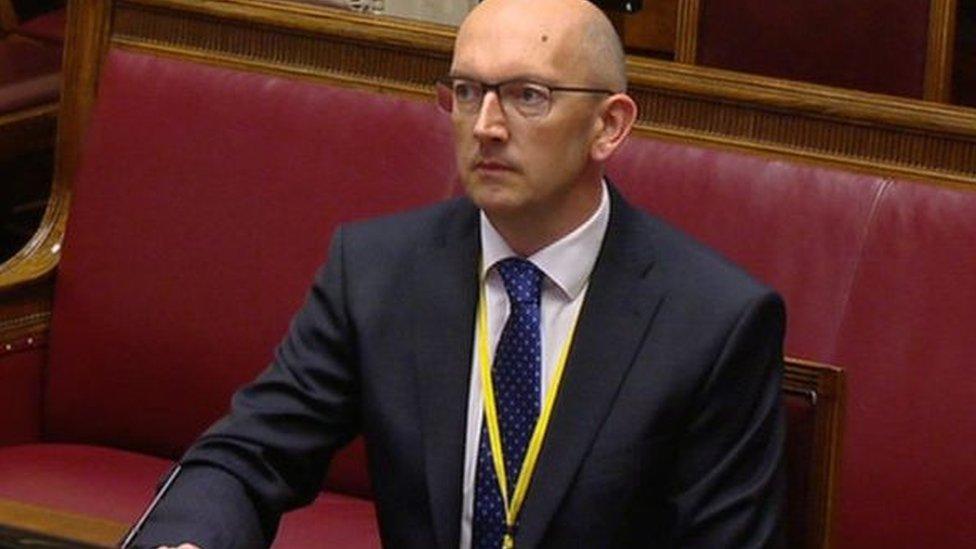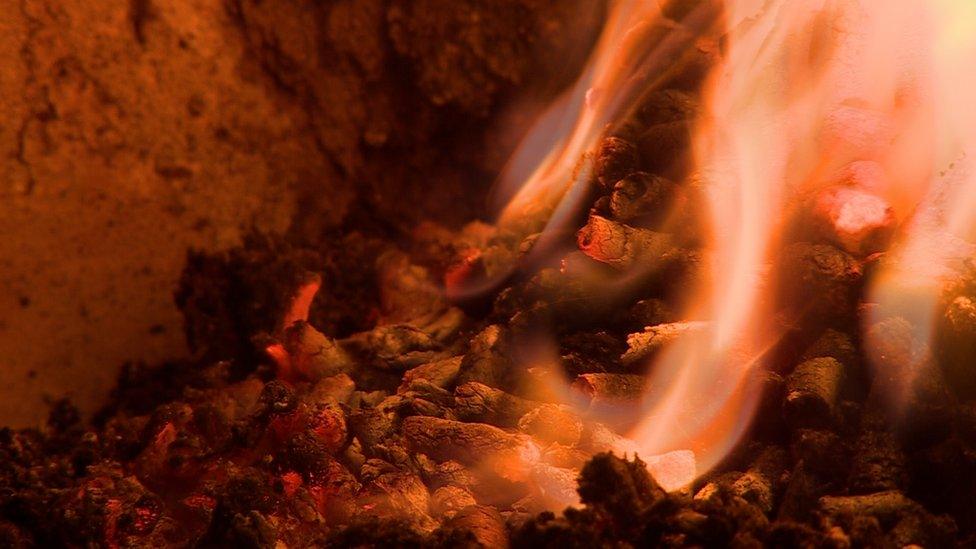RHI scheme: Annual payments to boiler owners cut further
- Published

Annual payments to boiler owners under the RHI scheme are to face another huge cut
Boiler owners under the Renewable Heat Incentive (RHI) scheme are to face another huge cut in their payments, under new regulations announced on Tuesday.
Annual subsidy levels for the most common type of boiler will fall from around £13,000 to just over £2,000.
An equivalent scheme in Great Britain is paying up to £20,000 per boiler.
Businesses in Northern Ireland will also be offered the option of a buyout.
There are around 2,100 boilers in the Northern Ireland scheme, which was suspended amidst political controversy in early 2016.
The RHI scheme was one of the primary reasons for the collapse of the Northern Ireland Executive in January 2017 after the exposure of its flaws and a vast projected overspend of public money.
A year-long public inquiry has examined the design, operation and oversight of the scheme and is due to report in the coming months.
Boiler owners express concern
Boiler owners have criticised the depth of the cut in their tariffs, claiming it could force some to close their businesses.
The boilers were installed in a range of firms including hotels, nursing homes and manufacturing facilities.
Around half are in agri-businesses with many of those on poultry farms.

There are around 2,100 boilers in the Northern Ireland RHI scheme
Claimants signed up to the 20-year government scheme with a guaranteed tariff and banks were encouraged to lend on the strength of a letter from former Enterprise Minister Arlene Foster.
However, the subsidy paid was higher than the cost of biomass fuel and hundreds of firms piled in to take advantage of the generous subsidy.
The budget was quickly overwhelmed and it took several cuts in subsidy levels to bring it back into line.
The latest change will see claimants receiving a rate of return on their investment of 12%, which is consistent with EU state aid approval for the scheme.
While the UK is set to leave the EU, post-Brexit the same rule will be applied by the UK's Competition and Markets Authority.
Officials say £120m has already been paid out of Treasury funds to RHI claimants and it expects to spend an additional £70m during the remainder of the 20-year scheme.
But that leaves close to £300m of available budget which will not now be drawn down.
County Antrim poultry farmer Tom Forgrave, with 10 boilers, was one of those who received the greatest amount of public subsidy.
In the first three years he got £750,000 in subsidy.
Reverting to fossil fuel
He said he'd borrowed half a million pounds from his bank over 10 years to install the boilers and associated pipe work and boiler houses, and was just half way through his repayments.

Tom Forgrave has said he is concerned about the viability of his farm due to the tariff cut
He said that based on the new tariff, any profit from the business would have to go to repaying his boiler debt.
"I'm concerned about the viability of my farm over the next five years," he said.
He claimed many biomass boiler owners might now switch them off and revert to fossil fuel.
But the Department for the Economy said it was convinced the new tariff was "fair".
It said the scheme was meant to compensate businesses for the difference in price of the more costly biomass boilers, compared to the cheaper fossil fuel equivalent.
Richard Rodgers, the department's head of energy, said the difference in price was around £24,000 and with a subsidy of just over £2,000 for the remaining 17 years of the scheme, firms would make up the differential.
Mr Rodgers said biomass fuel was consistently the lowest price fuel in the market and the cheapest way to generate heat, and a decision to turn the boilers off would be irrational.
The new regulations will take effect from 1 April 2019 once legislation is passed at Westminster.
- Published21 February 2019

- Published31 January 2019
